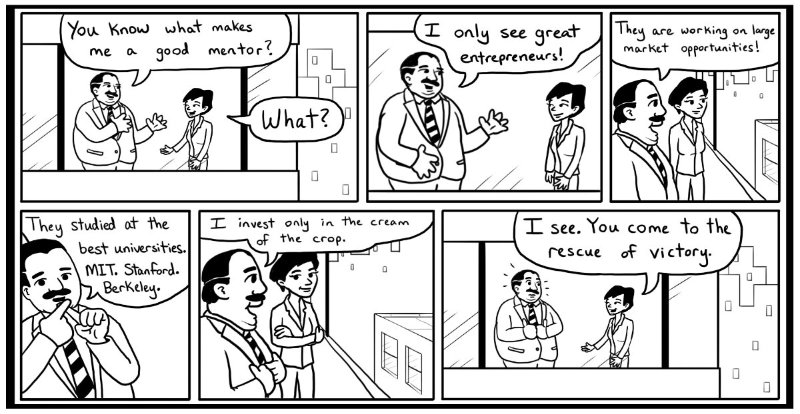Opinions
How to Compete with a Well-Funded Startup
By pointing to the following fantastic case study, I recently answered this question on Quora: “I have an idea for a startup, but there’s already a well-funded startup with a related idea, what should I do?”
Hotelplanner is a bootstrapped company that is now doing $25M/year and is the market leader in the group travel and hotel booking sector.
When they started, they had numerous heavily funded competitors who were spending money like there was no tomorrow.
But they were not focused on fundamentals.
>>>
From $100k to $1 Million: How to Choose a Business Mentor
These days, everyone seems to be a startup mentor. Whether they have ever done a startup or not, whether they have ever raised money or not, they are ready to advise entrepreneurs.
To those entrepreneurs looking for a mentor who can help you accelerate your business, please keep the above points in mind.
You need someone who is willing to tell you what you NEED to hear, not what you WANT to hear.
>>>
From $100k to $1 Million: How to Minimize Ownership Dilution
If you have managed to get past $100k in revenue, that tells me that you have some sense of who your customers are, why they are buying what you have to offer, and how to sell to this customer base.
This may also be a time when you are starting to consider your first funding round.
I want to tell you a story.
Christian Chabot, the founder CEO of Tableau is from Milwaukee, Wisconsin. He arrived in Silicon Valley to study at Stanford, and got inspired to become an entrepreneur by Irv Grousbeck. Soon after graduating from business school in 2000, Christian founded BeeLine Software that came up with a better way of doing digital mapping. The company only had 3 people, and was sold in 18 months to Vicinity, offering the founders some early cash.
>>>
The Art and Science of Conversion Optimization
Those of us who run web businesses know well that conversion optimization is tricky business. It is both art and science.
You need to get design elements right. You need to get messaging right. You need to get the site’s navigation flow right. You need to establish brand credibility. You need to be able to do multivariate testing to see what works, what doesn’t. You need to understand the psychology of your buyers to address objections. Blah, blah, blah …
>>>
10 Women Leaders Running Bootstrapped Companies
As I was writing the previous post, 10 Women Leaders Of VC-Funded Companies, I noticed that six out of the 10 companies I included on the list followed aBootstrap First, Raise Money Later strategy.
My point of view is that as long as you follow this strategy, your chances of raising money is always going to be higher, whether you are a man or a woman.
>>>
10 Women Leaders of VC-Funded Companies
As I wrote in my recent article, 10 Must Read Posts on Women and Entrepreneurship, I am concerned that the public discourse on feminism is veering in a victim-oriented direction, something I don’t care for.
As a follow-up to that post, I would like to introduce you to ten women who have raised venture capital as a founder CEO, a co-founder, or a non-founder CEO. In each case, I have linked to a detailed interview discussion I have had with the person, so that you can really dive into the points of view of these successful women.
>>>
10 Must Read Posts On Women And Entrepreneurship

The issue of women and entrepreneurship has been top of mind of late. It is a topic that I have written a fair bit about, and want to share with you a shortlist of key posts: >>>
Billion Dollar Unicorns: Reconsider Your Aspirations
In November last year, I read a brilliant piece titled Reconsider by David Heinemeier Hansson, creator of Ruby on Rails, and a partner at Basecamp, a small 50-people collaboration software company. David starts the piece by saying:
It [Basecamp] didn’t disrupt anything. It didn’t add any new members to the three-comma club. It was never a unicorn. Even worse: There are still, after all these years,less than fifty people working at Basecamp. We don’t even have a San Francisco satellite office!
I know what you’re thinking, right? BOOOORING.
After all, in these crazy days of Unicorn mania, what wisdom does a founder of a small, 50-people company full of remote workers serving about 6000 global customers offer you, really?
You are wrong.




